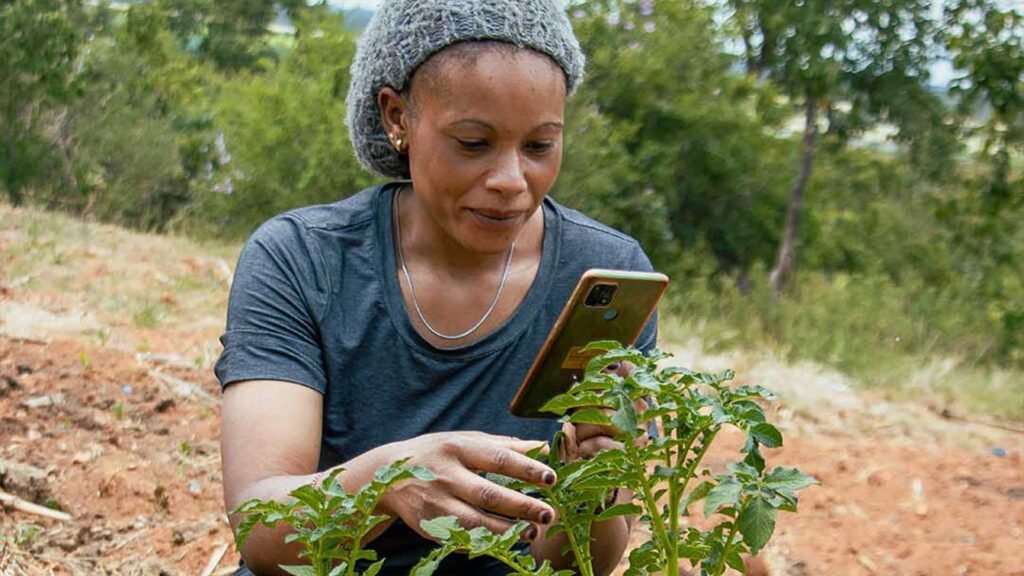Revolutionizing Agriculture: How Digital Content is Empowering Smallholder Farmers in Kenya


In an era where digital technology is transforming industries worldwide, agriculture in Kenya is undergoing a significant shift. This transformation is driven by the introduction of tailored digital content, enhanced access to digital platforms, and the ability of farmers to create and contribute to digital content. These innovations are not only improving agricultural practices but are also unlocking a range of developmental benefits for smallholder farmers and underserved communities
The Power of Tailored Digital Content
Tailored digital content refers to digital information specifically designed to meet the unique needs of smallholder farmers. In Kenya, this content has proven to be a game-changer. By providing relevant and timely information on farming practices, crop management, and market trends, tailored digital content helps farmers make informed decisions, ultimately improving their productivity and livelihoods.
Research conducted in Laikipia County, Kenya, involving 1,510 smallholder farmers, revealed that access to tailored digital content significantly enhances the developmental benefits of digital services in agriculture. The study found that tailored content not only increases user engagement but also empowers farmers to adopt new technologies and practices more effectively.
Enhancing Access to Digital Content
Access to digital content is crucial for farmers to leverage the benefits of digital agriculture. However, barriers such as poor internet connectivity and lack of digital literacy have historically limited this access. The study emphasized that improving access to digital content can have a profound impact on agricultural outcomes.
Efforts to bridge the digital divide have included initiatives to provide reliable internet access, digital literacy training, and the development of user-friendly digital platforms. These efforts have enabled farmers, particularly those in underserved areas, to tap into the wealth of information available online, thereby improving their farming practices and access to markets.

The ability to create and add digital content is another crucial aspect of leveraging the developmental benefits of digital services in agriculture. When farmers are empowered to share their knowledge and experiences through digital platforms, they contribute to a rich repository of local agricultural knowledge. This peer-to-peer knowledge exchange is invaluable in fostering innovation and improving farming practices.
The study highlighted that farmers who have the skills to create digital content are more likely to adopt and sustain the use of digital tools. This capability not only enhances their own agricultural practices but also benefits the broader farming community by providing locally relevant and practical information.
A Model for Future Agricultural Development
The findings from this research underscore the importance of tailored digital content, improved access to digital platforms, and the ability to create and contribute to digital content in driving agricultural development. The study’s regression analysis demonstrated that these factors collectively explain a significant portion of the variance in the developmental benefits of digital services in agriculture.
The implications of this study extend beyond Kenya. As digital agriculture continues to evolve, the model outlined in this research can serve as a blueprint for other regions seeking to empower smallholder farmers through digital innovation.
Looking Forward: The Future of Digital Agriculture
As we look to the future, it is clear that digital technology will play an increasingly vital role in agriculture. The study calls for further research to explore the long-term impacts of digital content on agricultural productivity and to refine the digital tools available to farmers.
The ongoing digital revolution in agriculture promises to create more inclusive, sustainable, and prosperous farming communities. By continuing to invest in digital infrastructure, literacy, and tailored content, we can ensure that smallholder farmers in Kenya and beyond are not left behind in this transformation.
Busia, Kenya – H.E. the Governor of Busia County today led the official launch of the Inclusive Digital Futures (IDF) Project at […]
The digital drums were beating, and the energy was electric as four visionary counties—Wajir, Garissa, Elgeyo-Marakwet, and Turkana—joined forces with ACWICT to […]
The African Centre for Women, Information and Communications Technology (ACWICT) has proudly announced its certification from NGOsource as equivalent to a Certified […]